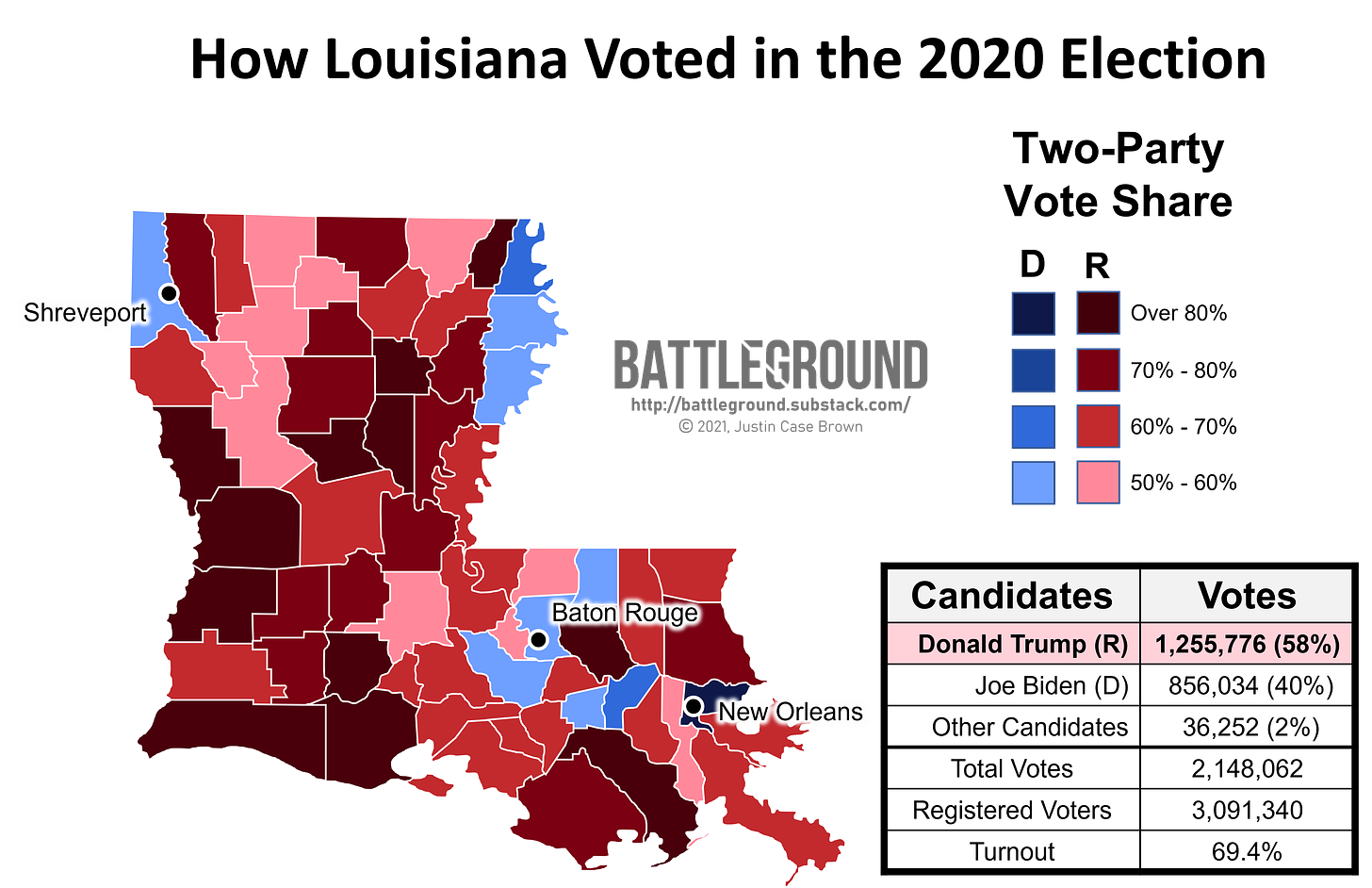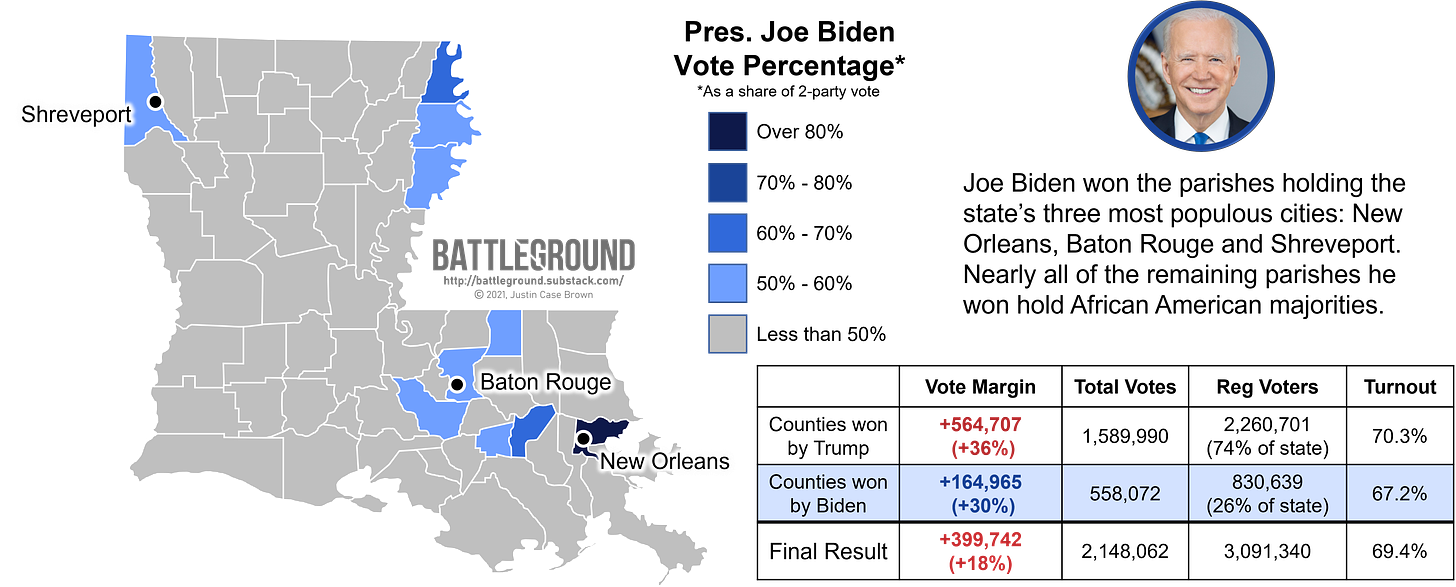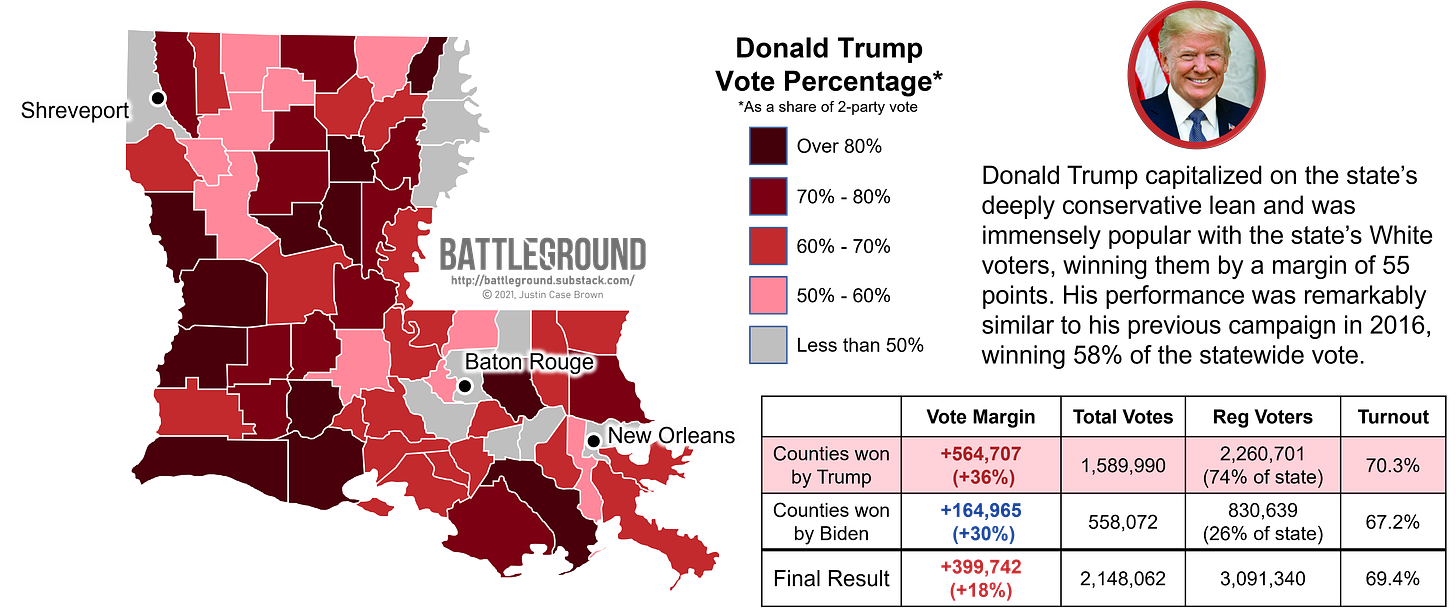Topline Takeaways
Joe Biden performed best among the state’s large African American population and struggled to perform well in the Whiter, rural areas of the state.
Donald Trump sailed to an easy win in Louisiana, largely due to the state’s deeply conservative lean.
The state’s Democratic governor, John Bel Edwards proves that Democrats must find a way to excite both African Americans and conservative voters in order to make the state competitive again on the presidential level.
In-depth Insights
Louisiana Democrats have seen major, persistent losses in their voting base throughout the 2000s. In 1996, Bill Clinton (former governor of neighboring Arkansas) nabbed wins in over 50 parishes throughout the state, giving him just over 52% of the statewide vote. In 2020, that number was reduced to just 10, with Biden barely receiving 40% of Louisiana’s total vote. The shifts in the Democratic electorate mirror those of other gulf states like Mississippi and Alabama: Black voters are the ones powering new registrations while White voters are defecting by even larger numbers, resulting in regular net losses for Democrats. As a result, Biden won nearly all of the state’s parishes where Black voters make up a majority.
Turnout in these majority Black parishes is lower than those where White voters are the majority, largely due to historical voter suppression efforts that have fed a persistent belief among Black voters that their votes don’t matter. One example of this targeted disenfranchisement was the selective implementation of the “understanding clause”: a test that required voters to give a ‘reasonable interpretation’ of a section of the state’s constitution…
“During the decades which the Understanding Clause was in use in Louisiana, the study estimates that the Clause reduced Black registration rates by over 30%, but only impacted white registration rates by 2.5%. Louisiana lawmakers had found a reliable way to disenfranchise Black residents while barely impacting the ballot access of white voters—an outcome that depended on local officials being granted significant discretion to decide when they applied the law… The Understanding Clause showed how important the regulation of local discretion is in ensuring that a law is fairly applied to all citizens.”
Donald Trump won Louisiana handily due to long-term shifts of conservative White voters defecting from Democrats to Republicans. This shift may be reaching its conclusion as Trump’s statewide vote remained at 58%, nearly identical to his 2016 campaign, Romney’s performance in 2012 and even John McCain’s win in 2008. Greg Rigamer, a demographer and pollster in New Orleans, shares that “Louisiana presidential races are highly predictable, with little variance.” This is in part due to national Democrats’ absence when it comes to campaigning in the state, as most of the state’s voters are deeply conservative and out of step with the liberal lean of today’s Democratic party. Even the state’s Democratic governor would be called a “DINO, (Democrat-in-name-only)” by members of the party’s progressive wing as he’s both pro-gun and pro-life.
Forecasting the Future: While the high-level view of Louisiana’s electoral landscape over time shows consistency, individual parishes are becoming increasingly partisan. Redder areas are getting redder and bluer areas area getting bluer as the years pass. Orleans parish, home to New Orleans, hit a high of 83% of the vote going to the Democratic candidate, a 16-point swing from Bill Clinton’s first win in the state in 1992. Conversely, a total of ten parishes gave Donald Trump over 80% of their vote in 2020, whereas no parishes favored George Bush by such wide margins when he flipped the state in 2000 after Bill Clinton’s wins.
As the state’s voting patterns largely fall along the racial divide, it’s imperative that Democrats work to build enthusiasm and increase registration among the state’s historically disenfranchised Black population to remain competitive. The state has one of the largest African American populations in the country, 1 in 3 residents identify as Black, ranking third behind only Mississippi and Georgia. While Black voters alone cannot flip the state for Democrats, they are an essential piece of the puzzle and Republicans will continue to rack up wins in the state if turnout among Black voters remains below that of White voters as it does today.





